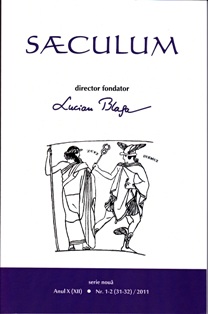CURAJ ŞI PRUDENŢĂ LA PLUTARH
Courage and prudence in Plutarch’s ethical view
Author(s): Lucian VoineaSubject(s): Philosophy
Published by: Editura Universitatii LUCIAN BLAGA din Sibiu
Keywords: Plutarch; the ethics; virtues; courage; practical wisdom;
Summary/Abstract: The Ethics of virtue weighs considerably in the work of Plutarch of Cheroneea (46 -125). His philosophical texts reveal a follower of Plato, as opposed to Stoic views and Epicurus’ outlooks on life, whereas in his works of practical moral he takes Aristotle as a model. The present paper is meant to show that the work “Parallel lives”, best known as a study of historiography, is mainly one of practical moral, aiming to highlight the virtues of some great people. The defining the concept of virtue will be followed by a short account of the four cardinal virtues in the philosophical traditions. The next approach will tackle the role played by all these virtues both in “Moralia” (moral writings) and in “Parallel lives”, with the view to mark out the connection – far from arbitrary – between two of them: andreia (the courage) and phronesis (the prudence, or practical wisdom). The moral virtue, the reckless courage or the restraint can easily turn into vice. Prudence (phronesis) – intellectual virtue greatly appraised by Stoic and Epicurian thinkers – gains importance in Plutarch’ debate only by association with andreia (courage).
Journal: SAECULUM
- Issue Year: 36/2011
- Issue No: 1-2
- Page Range: 52-61
- Page Count: 10
- Language: Romanian
- Content File-PDF

